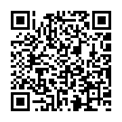 |
編目園地推出LINE服務囉! 歡迎掃描QR Code立即加入編目園地的LINE@帳號, 每月編目園地的更新內容、國內外資訊組織報導等訊息將一次提供給您! |
-
技術規範訊息
-
RDA Toolkit 展示 提供影音線上學習
-
2021年1月26日 RDA Toolkit 舉辦了一場公開的線上展示,介紹新版的 RDA Toolkit。鑒於 RDA Toolkit 重啟計畫 (RDA Toolkit Restructure and Redesign Project, 3R )已經告一段落,大家可以開始上網去熟悉新版的各種新的功能和操作。這個一小時左右的展示 (New RDA Toolkit Demo) 介紹如何在新網站上瀏覽使用,查找相關資料的基本功能;一些新增功能的特色;並提醒大家一些使用上的小技巧。
-
ALA Digital Reference專訪「Introducing RDA: A Guide to the Basics after 3R, Second Edition」新書作者 Christine Oliver
-
第二版的 Introduction to RDA 已經出版,對 2020 11月剛改版的 RDA Toolkit 的變動,有詳細的說明。圖書館專業人員想要一窺 RDA 的堂奧,這會是個很好的敲門磚。ALA 出版部門採訪作者 Christine Oliver,討論館員如何更有效地運用 RDA 及相關資源。
RDA 現在和 LRM 結合的更緊密,對編目人員有什麼重要性?
當 IFLA LRM 於 2017年正式發布之後,取代了原先的FRBR, FRAD 和 FRSAD,成為新的書目實體關係理論模型。RDA被定位為國際性的編目規範,其發展也須和最新的國際標準 IFLA LRM 融合。LRM 不只統整了三個 FR 子模型,而是對書目資料的看法都進化到新的模式。舉例來說,針對比較複雜的領域如"連續性出版品(serials)"或者"聚集性資源(aggregates)",LRM 都提供了更細緻的觀察角度。透過 IFLA LRM ,我們對於書目資料的世界有了更先進的認識。
3R 計畫裡引進很多的改變,就是為了要使 RDA 能夠成為國際標準。國際化對編目專業人員會有什麼樣的助益?
從 RDA的 "目編和原則" 章節,就可以看出RDA 本來就想要成為國際化的一個標準。裡面就有一段文字特別指出 "強調維持資料的一致性"。
編目規範國際化的主要目的,是希望鼓勵並促進國際上擁有不同技術環境與編目傳統的編目及詮釋資料社群採用該規範。把焦點從"彼此有哪些不同"轉移到"彼此能分享什麼"。RDA 致力於讓大家對一個共享的書目資料架構和元素集產生共識。這對編目員及書目資料的使用者都是有益的。就編目員日常實務而言,可連結全世界的編目同儕共建共享新的書目資料;就使用者而言,當不同社群產出的書目資料具有高度互通性時,使用者就越能感受到在資料的探索、查詢、識別與選擇上的無縫體驗。
在 3R專案裡,你最喜歡的改變有哪些? 有那些你覺得會對編目人員特別有好處?
新版的 RDA Toolkit 和舊版比起來非常不一樣。我喜歡現在的型貌和架構。
- 所有的資料元素都根據實體來排列組織。
- 每個實體的頁面下方可以直接檢索相關的元素,這樣就可以看出用來描述實體的每所有元素。
- 每個元素的頁面中,都一致地標示了四種描述方式的說明,即使並非所有元素都會使用到所有的描述方式。這樣的說明呈現,不僅強調了描述資源不是只有一種方式,也提醒我們,所使用的標準規範是為不同技術環境做設計的,反映出不同編目社群所處環境的差異。
對編目館員最有助益的,應該就是在 Toolkit 中採用了新的模組架構。以資料元素為最基礎的結構單元,並於每個資料元素的頁面中,收錄與該元素相關的所有重要資訊,包含元素的定義、範圍,以及與MARC 21的對照、描述方法的說明指引、範例等參考資訊,並提供與相關元素的連結。對於需要參考各館編目政策的編目員,Toolkit 也將規範本文與LC-PCC、大英圖書館等各個重要政策聲明,於同一畫面中並列呈現,編目員亦可視需求選擇預設的政策聲明,搭配相關的規範本文參考使用。
當各個機構在評估是否採用新版的 RDA 並開始進入轉換的程序時,妳覺得最大的挑戰會是什麼?
新版 RDA Toolkit 的架構和舊版完全不同。所以最大的挑戰應該是如何熟悉新版的架構和模組。新版有多種方式來瀏覽使用網站,檢索內容。另外也有不少免費的示範說明資源,為Toolkit的瀏覽、檢索等使用方式提供指引。整體的網站設計也很直覺化,只要多加使用測試,很快就會熟悉整體的系統。
相對也有很多提供協助的精靈來指導大家使用。整體的網站設計也很直覺化,只要多加使用測試,很快就會熟悉整體的系統。
在這個轉化到新版的階段,建議舊版和新版都可一同使用。一方面可以給大家足夠的時間來進一步認識新的 RDA Toolkit。另一方面,在新舊版本切換使用之際,也更容易讓大家體會到改版的好處。
編目館員如何透過您的著作而得到幫助?
希望我的書可以提供簡介,讓大家了解 RDA 重大的改變,並進一步解釋為什麼要去改變的原因。本書提供 RDA 發展過程的背景和脈絡,讓大家能夠了解 RDA 是如何演進到今天的狀態。本書不是要做為訓練手冊,而是要指引大家去認識新版 RDA Toolkit 展現出的 RDA 的面貌。
-
-
編目園地快報
-
更新國家圖書館學位論文相關代碼表
-
更新 國家圖書館學位論文學校及系所(新增2校;修改2校)
新增 國家圖書館學位論文系所名稱或代碼新增、修訂一覽表(110年02月)
-
-
資訊組織文獻
-
Controlled Vocabularies: Past, Present and Future of Subject Access
-
Controlled vocabularies are a foundational concept in library science and provide a framework for consistency in cataloging practices. Subject headings provide valuable access points to library resources during search and discovery for patrons. Many librarians will be familiar with the more widely used controlled vocabularies, like those maintained by national libraries or major professional organizations. More recently, there has been an increasing shift toward specialized vocabularies maintained by independent entities intended for much narrower use. While there is valid criticism of the nature or content of controlled vocabularies, they will likely continue to be an important feature in information organization.
-
Translating RDA Reference in Greek: Reflections on the Project
-
This paper presents and reports on the ongoing project of the Greek translation of the Resource Description and Access (RDA) Reference as pursued by its author. It discusses the first outcomes of the effort during the four-year period from 2016-2020. It focuses on the steps followed; the procedures and various technical issues; as well as the knowledge, expertise, and skills gained by the liaison-translator as the project evolved. It aims to contribute to RDA-related documentation as implemented in the case of the Greek translation of the RDA vocabularies and to encourage greater involvement by and within the Greek library and information science sector.
-
Library Cataloging, Classification, and Metadata Research: A Bibliography of Doctoral Dissertations—A Supplement, 1982–2020
-
One year has elapsed since the publication of “Library Cataloging, Classification, and Metadata Research: A Bibliography of Doctoral Dissertations” in 2020. 2 That bibliography included a list of research works published in the English language from all over the world, but chiefly in the United States. It contained 170 titles, accepted in 1982 or later, that were available for online and database searching through November 25, 2019. The current list is a supplement that includes omissions of doctoral dissertations that were accepted between 1982 and 2019 but not included in the initial bibliography, and new works published in the year 2020. It contains 16 titles that were available for online and database searching through December 31, 2020.
-
Extending the LRM Model to Integrating Resources
-
Integrating resources are distinct in that they change over time in such a way that their previous content is replaced with updated content. This study examines how integrating resources can be modeled using the entities and relationships of the IFLA Library Reference Model (LRM) and clarifies how they can be identified. While monographs have been extensively analyzed, integrating resources have received very little attention. Applying the model unmodified to integrating resources is neither practical nor theoretically sound. With the addition of two proposed relationships, the model can be extended to accommodate the diachronic relationship intrinsic between expressions and manifestations exhibited by integrating resources.
-
Records, Responsibility, and Power: An Overview of Cataloging Ethics
-
Ethics are principles which provide a framework for making decisions that best reflect a set of values. Cataloging carries power, so ethical decision-making is crucial. Because cataloging requires decision-making in areas that differ from other library work, cataloging ethics are a distinct subset of library ethics. Cataloging ethics draw on the primary values of serving the needs of users and providing access to materials. Cataloging ethics are not new, but they have received increased attention since the 1970s. Major current issues in cataloging ethics include the creation of a code of ethics; ongoing debate on the appropriate role of neutrality in cataloging misleading materials and in subject heading lists and classification schemes; how and to what degree considerations of privacy and self-determination should shape authority work; and whether or not our current cataloging codes are sufficiently user-focused.
-
國家圖書館編目園地電子報 第240期 2021/03/02發行
編輯:國家圖書館館藏發展及書目管理組
創刊日期:2001/4/2
本報著作權屬「國家圖書館」所有
服務信箱:catadm@ncl.edu.tw